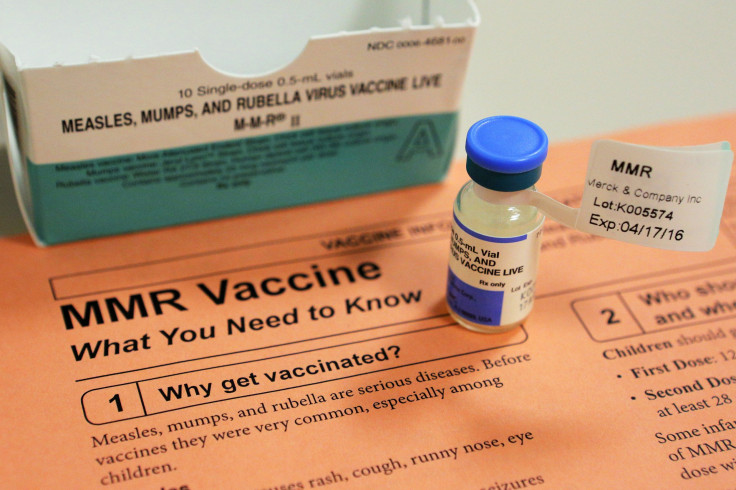Measles Outbreak Canada 2015: Quebec Cases Spike To 119 After Infected Student Attended School

The Canadian province of Quebec has 119 confirmed cases of measles, a significant increase from 32 cases at the end of February and a number that's expected to rise further, health officials said Wednesday. None of the 119 people with measles had been vaccinated against the virus.
The spike in cases came after a young student attended school for a day while contagious, although it was not clear which day that was. The elementary school, in the Lanaudière region northeast of Montreal, has 114 students and 51 staff who are not fully vaccinated, the Globe and Mail reported. The school will offer vaccinations Thursday and will require those who refuse vaccinations to remain at home for two weeks. Health officials have said they are expecting more cases to emerge from the school, which is at the heart of the outbreak.
The outbreak in the Lanaudière area has been linked to the measles outbreak at Disneyland, in California. Outside of the Lanaudière area, Quebec province has no known cases of measles, and other limited cases of measles in Canada have been reported in Ontario and Manitoba provinces.
The first cases of measles in Quebec were announced Feb. 10, after health officials in Quebec confirmed 10 cases in Lanaudière. At least one person from that group had visited Disneyland, and none were vaccinated against measles. About 91 percent of 1-to-2-year-old babies in Lanaudière are vaccinated, according to Joane Desilets, an infectious disease specialist.
Measles is a highly contagious virus with symptoms that appear typically one to two weeks after a person is infected, meaning that a person can be infected and not know it. It often begins with a high fever and runny nose, among other symptoms, and can also lead to rashes and tiny white spots inside the mouth. The virus can be prevented with a vaccine.
© Copyright IBTimes 2024. All rights reserved.






















